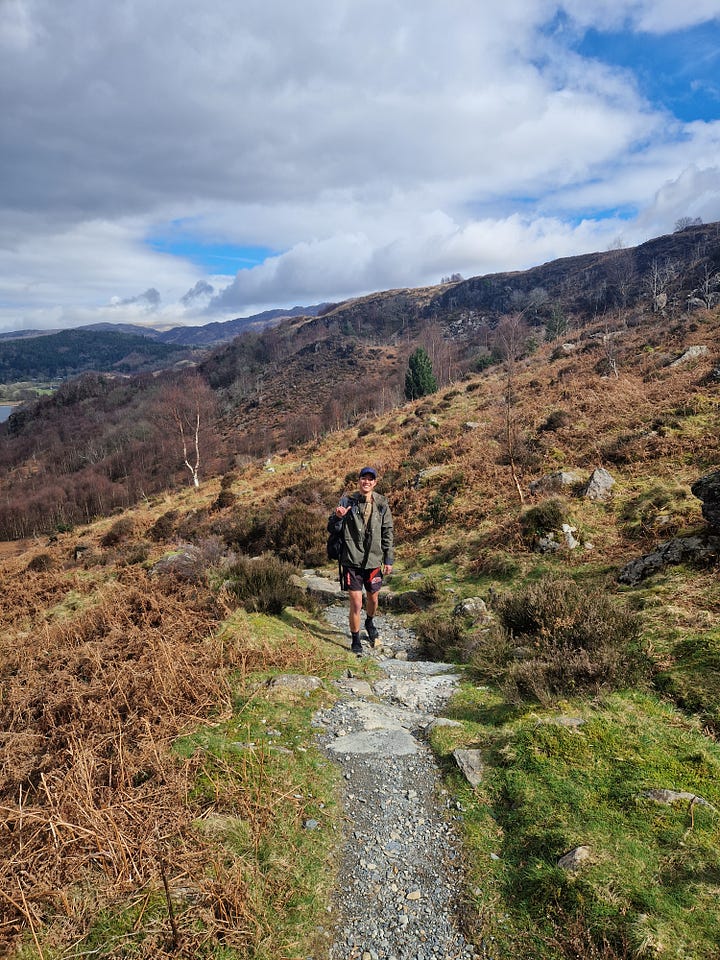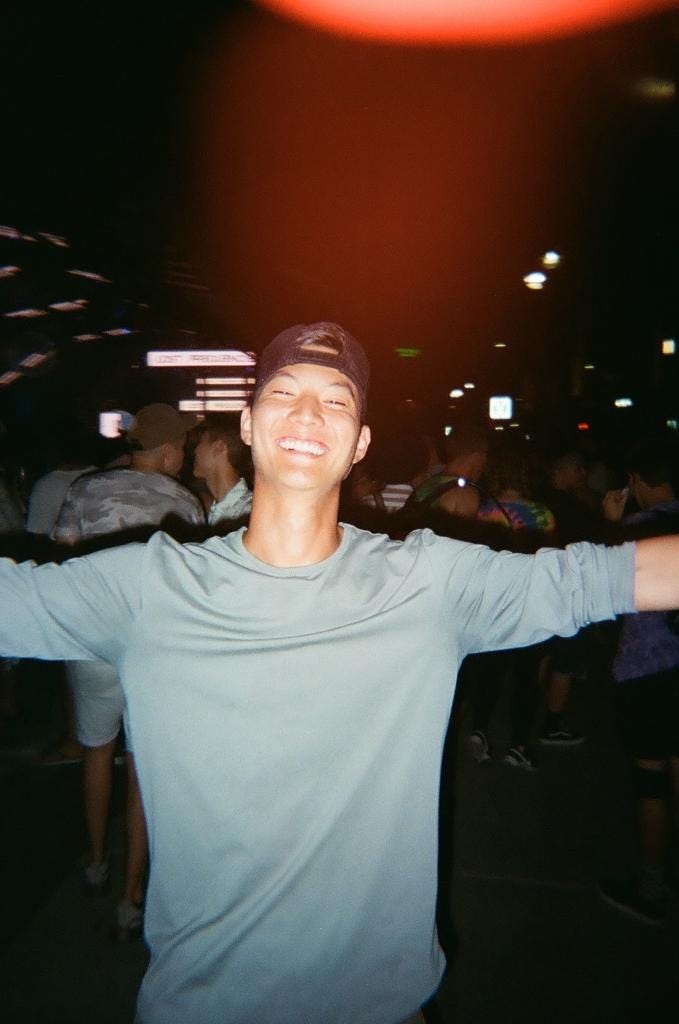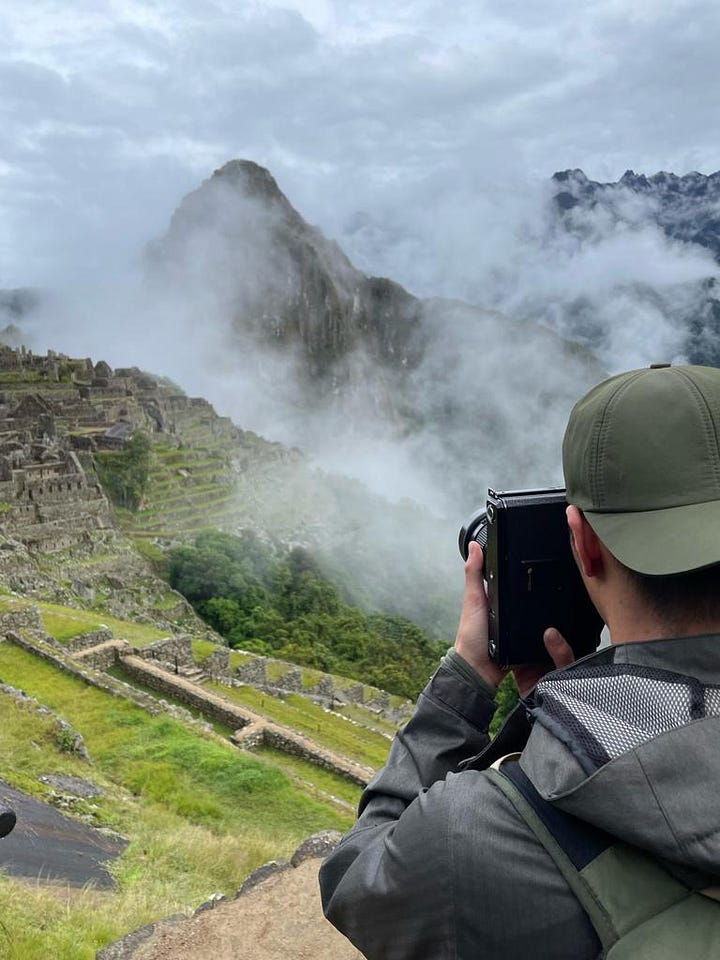The 'Homeless' Nomad
Unveiling the Emotional Odyssey of a Globetrotter Struggling with Invisible Baggage
Photo by Josh Lu
What you are about to read is by no means a conventional homeless story.
Josh began his nomadic life after a long-term relationship ended. Nomadic life for many is the dream. It portrays freedom of life, time, responsibilities and of course allows you to travel. In many cases it offers financial freedom too and although Josh admittedly is in a privileged position, this does not take away from him missing the feeling of ‘home’.
Generally, the term homelessness is perceived as someone not having a structural home along with an image of someone who lives on the street, but there is so much to it. It is so complex. How many of us have said “I’m going home” when the place you reside in does not actually feel like home?
Perhaps love and home are so interconnected because it is actually ‘one’. Josh and I spoke in depth about feeling at home, describing it as a sense of belonging, connection and love. Love is not logical or, so I have been told, it is a feeling; “you just know”, and that is why it is scary because you don’t use your logic to decide if you are in love, you use your logic to decide if you are going to accept it, deny it or even talk yourself out of it entirely.
“There’s a quiet strength that comes with the ability to accept, be content, and find peace – despite the circumstance”
Contentment is a state of satisfaction and happiness with one’s present moment situation, without the desire for more or different things. It is a feeling of peace with oneself and one’s circumstances, and gratitude for what one has. Contentment is not dependent on external circumstances or material possessions, but rather on one's internal state of mind and attitude towards life. It is a state of mind that is characterised by a sense of peace, joy, and gratitude, and it allows people to experience happiness and fulfilment in their daily lives. Cultivating contentment involves focusing on the positive aspects of life, practicing gratitude, and letting go of the need for constant change or improvement. It is a valuable quality that can help people to live more fulfilling and satisfying lives, regardless of their external circumstances. This isn’t to say that we shouldn’t desire, crave or be inspired to achieve more, but there is a blurry fine line of how we humans view and action this.
“Right here just isn’t enough. We need something else, something more. Another snack, another smoke, another swipe – anything to escape the present. It happens when we’re bored, but especially when we’re in pain. Sitting still wasn’t good enough, so I started traveling. But after a year and a half, my intentions faded. I was going through the motions because I had no lease, nowhere calling me home, and nowhere I belonged…I guess it depends on what your soul needs at the moment. Don’t we want it all? I haven’t made up my mind”
What does it mean to have it all?
The phrase "having it all" is often used to describe the idea of achieving success and happiness in all areas of life, such as career, relationships, personal growth, health, and wealth. However, the definition of "having it all" can vary greatly depending on an individual's values, goals, and aspirations.
For some people, "having it all" may mean reaching the pinnacle of their career, having a happy family, and being financially secure. For others, it may mean having freedom and flexibility in their schedule, pursuing their passions, and traveling the world. Still, for others, it may mean finding inner peace, contentment, and meaning in life. Whereas for the homeless it could be a nutritious meal, a bed for the night, a simple hello, getting a job or full time accommodation.
Ultimately, the concept of "having it all" is subjective and personal, and what it means to one person may be different from what it means to another. It is important to define success and happiness based on one's own values and priorities, rather than trying to live up to external expectations or societal norms.
“But as I got further and further from home, it felt like losing a game of tug of war. You want to hold on, but you have to let go. I was starting to miss the feeling of belonging”
Perhaps this is saying we as individuals are moving further and further away from ourselves. We are so consumed by outside factors including one that is now common; to want to go against societal norms and not be placed in a box, that it actually blindsides us into segregating into further boxes without noticing that these too are boxes themselves.
“It doesn’t matter if I’m a decent guy on my travels, at Burning Man, or on retreat. The real measure of who you are takes place when you return home”
Regardless of our stories and experiences, past and present, who we are and how we feel when home alone with just our thoughts is the core foundation. If we are able to feel peace within that, we are able to let go of control, and in some cases, any triggers that may occur.
“I think home is a place where I feel like I belong, it's a place that is familiar to me and I'm familiar to it. Like the people around you go home, there’s that ‘hey it's Josh’, you know you're back home with your people. And your environment also is something that you're familiar with. Oh, that's my towel, my candle, whatever that is”
Josh may have picturesque landscapes and the smell of clean air and the open sea to distract him but for someone who is privileged enough to choose which environment, Airbnb or hotel to lay his head feels like this, is it any wonder there are a number of homeless people that return to the streets? Be it from drugs, prison or abusive relationships? Their world on the street is somehow safer, with a sense of community and belonging, than what we consider a roof over our head. Luther Vandross touches on this through his song, A House is not a Home:
“a chair is still a chair, even when there's no one sittin' there
But a chair is not a house and a house is not a home
When there's no one there to hold you tight
And no one there you can kiss goodnight”
How many of us take for granted being able to go home after our day, drop our bags, strip, lay on the rug, sofa, bed and sigh? If you take a moment to be with that sigh, you’ll notice how your body drops into an internal state of relaxation and as my Yin teacher has drilled into me, sighing is good for the liver which in Chinese medicine represents anger, resentment, frustration etc
“you do miss it. It’s been two and a half years where I don't have the feeling of coming back at the end of the day. And having that sigh like oh, I can just relax. I mean I can and I do get to relax and stuff. It’s not for any long period of time. It's not sustaining. It's maybe temporary but I think the people of it is the thing I missed the most like having a community, having my friends, having support, stability, people to grow alongside with”
I once heard that ‘connection is the currency of everything’. Josh’s privileged story shows that it doesn’t matter if you are super rich, famous, homeless, emotionally guarded or what we look like physically; What matters is pursuing a real connection, that “I know you” because without that, the human experience is null and void bar material possessions, quick fixes or ships passing by.
Josh’s nomad dream may have been short-lived compared to a lifetime living on the streets but if we lived in a world where everyone is accommodated equally then perhaps we wouldn’t need to fight against societal norms. If we could achieve such a world, we could find that a baseline of safety and security is embedded within people from birth. Thus, creating space from the offset for acceptance and worth.




Keep up with Josh’s journey:
https://www.joshlu.com/
https://www.instagram.com/probablyjosh/
Interested in Yin or sighing:
Contact Sara Fakih at:


